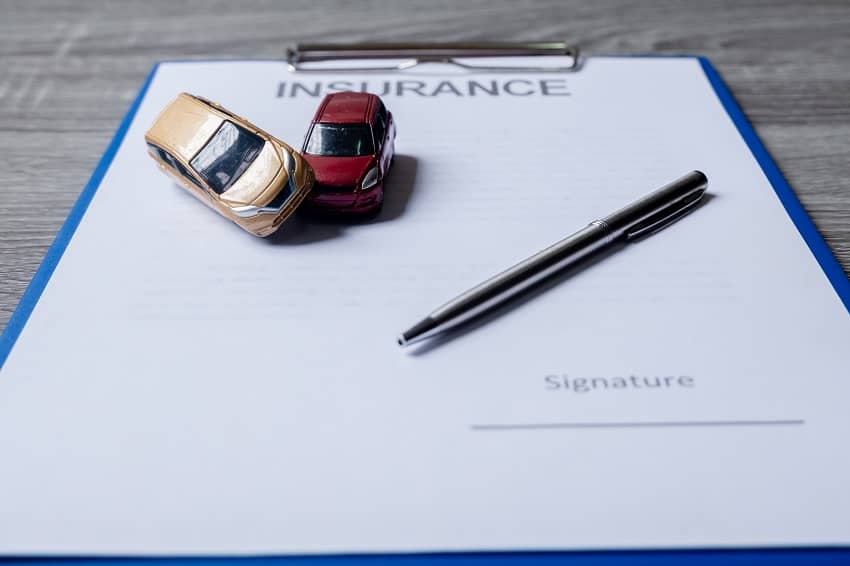In virginia, car insurance is required by law and helps protect drivers in case of accidents or damages. Introducing a brief overview of car insurance in virginia, this article will explore the state’s minimum coverage requirements, optional coverage options, and key factors that affect insurance premiums.
By understanding the basics of car insurance in virginia, readers will be equipped to navigate the insurance market and make informed decisions to ensure they are adequately protected on the road. Whether you are a new driver or a resident looking to update your policy, this guide will provide valuable insights into the world of car insurance in virginia.
Table of Contents
Understanding Car Insurance Requirements In Virginia
Car Insurance In Virginia
Virginia is known for its scenic roads and beautiful landscapes, making it a great state for road trips and leisurely drives. However, before hitting the road, it’s crucial to understand the car insurance requirements in virginia. By familiarizing yourself with these requirements, you can ensure that you have the necessary coverage and avoid any potential penalties for non-compliance.
Minimum Liability Coverage In Virginia
In virginia, drivers are required to carry minimum liability coverage to legally operate a vehicle. The minimum liability insurance limits in the state are:
- $25,000 for bodily injury or death of one person in an accident caused by the driver
- $50,000 for bodily injury or death of two or more persons in an accident caused by the driver
- $20,000 for property damage in an accident caused by the driver
Having the minimum liability coverage helps protect you financially in case you cause an accident that results in injuries or property damage to others. It’s important to remember that these limits only represent the minimum requirement and may not be sufficient in all situations.
It’s recommended to consider higher liability limits to adequately protect yourself.
Penalties For Driving Without Insurance
Driving without insurance in virginia can lead to severe penalties. If you are caught operating a vehicle without the required insurance coverage, you may face the following consequences:
- Suspension of your driver’s license
- Suspension of your vehicle registration
- Payment of a $500 uninsured motor vehicle fee
- Sr-22 insurance requirement for three years
To reinstate your driving privileges and vehicle registration, you will need to provide proof of insurance or pay the uninsured motor vehicle fee. It’s crucial to maintain continuous insurance coverage to avoid these penalties and ensure compliance with the law.
Optional Coverage To Consider
While the minimum liability coverage is necessary to meet virginia’s legal requirements, there are additional optional coverages that you may want to consider for added protection. These optional coverages include:
- Collision coverage: This coverage helps pay for repairs or replacement of your vehicle if it is damaged in a collision, regardless of who is at fault.
- Comprehensive coverage: Comprehensive coverage provides protection against non-collision-related damages to your vehicle, such as theft, vandalism, or damage from natural disasters.
- Uninsured/underinsured motorist coverage: This coverage protects you if you are involved in an accident with a driver who doesn’t have insurance or carries insufficient insurance to cover your damages.
- Medical payments coverage: Medical payments coverage helps pay for medical expenses for you and your passengers in the event of an accident, regardless of fault.
Considering optional coverages can provide you with greater peace of mind knowing that you have additional protection in various scenarios.
Understanding the car insurance requirements in virginia is essential for responsible vehicle ownership. By adhering to the minimum liability coverage and considering optional coverages, you can ensure that you are appropriately protected in case of accidents and avoid potential penalties for driving without insurance.
Stay informed, stay covered, and enjoy the open roads of virginia.
Factors Affecting Car Insurance Rates In Virginia
Age And Driving Experience
- Your age and driving experience are key factors that influence your car insurance rates in virginia.
- Insurance companies consider younger drivers less experienced, which poses a higher risk on the road.
- On the other hand, older drivers with more driving experience may receive lower rates because they are seen as more responsible and less likely to engage in risky behavior.
Location And Zip Code
- Your location and zip code greatly impact your car insurance rates in virginia.
- Urban areas tend to have higher rates due to increased traffic, congestion, and the likelihood of accidents.
- Rural areas, on the other hand, often have lower rates due to fewer accidents and lower crime rates.
Vehicle Type And Make
- The type and make of your vehicle play a significant role in determining your car insurance rates in virginia.
- Expensive cars, luxury vehicles, and sports cars generally have higher rates because they are costly to repair or replace.
- On the other hand, safer and more economical cars may have lower rates due to their reduced risk of accidents and lower repair costs.
Driving Record And Claims History
- Your driving record and claims history have a direct impact on your car insurance rates in virginia.
- Drivers with a clean driving record and no history of claims are often rewarded with lower rates.
- On the contrary, drivers with accidents, violations, and claims may experience higher rates due to their perceived higher risk on the road.
Credit Score And Insurance Score
- Your credit score and insurance score can influence your car insurance rates in virginia.
- Insurance companies often consider individuals with higher credit scores to be more financially responsible, translating to lower rates.
- Individuals with poor credit scores may face higher rates due to the perceived financial risk associated with them.
Deductibles And Coverage Limits
- The deductibles and coverage limits you choose for your car insurance policy can affect your rates in virginia.
- Higher deductibles often lead to lower premiums but require you to pay more out of pocket in the event of a claim.
- Lower coverage limits may result in lower premiums, but they also provide less protection in case of an accident or theft.
Age, driving experience, location, vehicle type, driving record, claims history, credit score, insurance score, deductibles, and coverage limits are all factors that influence car insurance rates in virginia. Understanding how these factors affect your premiums can help you make informed decisions when choosing a car insurance policy.
Remember to compare quotes from different insurance providers to find the best coverage for your needs at the most competitive rates.
Top Car Insurance Providers In Virginia
Provider A: Coverage Options, Discounts, And Customer Reviews
When it comes to car insurance providers in virginia, provider a stands out with its range of coverage options, generous discounts, and positive customer reviews. Here are some key points to consider:
- Coverage options: Provider a offers comprehensive coverage that includes protection for bodily injury liability, property damage liability, collision, and comprehensive damages. They also offer optional coverage for personal injury protection and uninsured/underinsured motorist benefits.
- Discounts: Provider a rewards its policyholders with a variety of discounts to help lower their premiums. These discounts may include safe driving discounts, multi-policy discounts, good student discounts, and discounts for installing safety features in your vehicle.
- Customer reviews: Many customers of provider a have expressed satisfaction with their services. They praise the company’s efficient claims process, helpful customer support, and competitive pricing.
Provider B: Features, Pricing, And Customer Satisfaction Ratings
Provider b is another top car insurance provider in virginia, offering a range of features, competitive pricing, and high customer satisfaction ratings. Here are the key points you should know:
- Features: Provider b offers a range of features to enhance your car insurance coverage. These may include roadside assistance, rental car reimbursement, and customizable policy options for added flexibility.
- Pricing: Provider b strives to provide affordable insurance coverage without compromising on quality. They offer competitive rates based on factors such as your driving record, age, and the type of vehicle you own.
- Customer satisfaction ratings: Customers consistently rate provider b highly for their excellent customer service, easy claims process, and prompt handling of inquiries. Their commitment to customer satisfaction sets them apart from other providers.
Provider C: Policies And Benefits Tailored To Virginia Drivers
When it comes to policies and benefits tailored specifically for virginia drivers, provider c is a standout choice. Here are the key points to consider:
- Policies: Provider c understands the unique insurance needs of virginia drivers, which is reflected in their specialized policies. They offer coverage for specific risks associated with the state, such as uninsured motorist protection and medical expense benefits.
- Benefits: In addition to their tailored policies, provider c also provides additional benefits that cater to virginia drivers. These may include accident forgiveness, flexible payment options, and legal expense coverage to help you navigate complex legal processes.
- Virginia-specific expertise: Provider c has a deep understanding of the virginia insurance market and regulatory environment. This ensures that their policies comply with state requirements and provide the necessary coverage for virginia drivers.
Remember, when comparing quotes and selecting the right car insurance provider in virginia, consider factors such as coverage options, discounts, customer reviews, features, pricing, customer satisfaction ratings, and policies tailored to your specific needs as a virginia driver.
Understanding Different Types Of Car Insurance Coverage
Car insurance is an essential aspect of owning a vehicle in virginia. Understanding the different types of car insurance coverage is crucial in ensuring you have the necessary protection in case of an accident or incident. Let’s explore the key points of various car insurance coverage:
Liability Insurance: Bodily Injury And Property Damage
Liability insurance is required by law in virginia. It provides coverage for damages you may cause to others while operating your vehicle. Here are the key points to know:
- Bodily injury coverage: This component of liability insurance helps cover the medical expenses and other costs if you injure someone in an accident.
- Property damage coverage: Property damage liability coverage assists in paying for the repair or replacement costs of other people’s property (such as vehicles, fences, or buildings) that you damage in an accident.
Collision Coverage: Repairing Or Replacing Your Vehicle
Collision coverage can be valuable in protecting your own vehicle in case of an accident. Consider the following points regarding collision coverage:
- Repair costs: Collision coverage helps pay for the repairs to your vehicle when it is involved in a collision, regardless of who is at fault.
- Vehicle replacement: In the event of a severe accident where your vehicle is totaled, collision coverage can help cover the cost of replacing your car.
Comprehensive Coverage: Non-Collision Incidents
While collision coverage protects against accidents, comprehensive coverage safeguards your vehicle from non-collision incidents. Here’s what you should know:
- Natural disasters: Comprehensive coverage includes protection against damage caused by natural disasters such as hurricanes, floods, or earthquakes.
- Theft and vandalism: If your vehicle is stolen or damaged due to vandalism, comprehensive coverage will help cover the associated costs.
Personal Injury Protection: Medical Expenses And Lost Wages
Personal injury protection (pip) coverage assists with medical expenses and lost wages for you and your passengers, regardless of fault. Consider the following points about pip coverage:
- Medical expenses: Pip coverage helps pay for medical treatment, hospital bills, and other related expenses resulting from injuries sustained in a car accident.
- Lost wages: If injuries prevent you from working, pip coverage can provide compensation for the income you would have earned during your recovery period.
Uninsured/Underinsured Motorist Coverage: Protecting Yourself
Uninsured/underinsured motorist (um/uim) coverage protects you in case of an accident involving a driver who lacks sufficient insurance. Here’s what you should know:
- Underinsured motorist coverage: This type of coverage comes into play when the at-fault driver’s insurance limits are insufficient to cover your medical expenses and other damages.
- Uninsured motorist coverage: If you are involved in an accident with an uninsured driver, this coverage helps compensate for your medical bills and other losses.
Understanding the different types of car insurance coverage available in virginia is essential for protecting yourself and others on the road. Evaluate your needs and consider the potential risks to ensure you have the right coverage for your vehicle. Stay informed and drive with peace of mind.
Tips For Saving Money On Car Insurance In Virginia
If you’re a driver in virginia, you know that car insurance is a legal requirement. However, that doesn’t mean you have to pay a fortune for coverage. There are several tips and strategies you can implement to save money on your car insurance premiums.
Here are some key points to consider:
Bundling Different Insurance Policies
- Combining your car insurance policy with other insurance policies, such as home or renter’s insurance, can often lead to significant savings.
- Many insurance companies offer discounts for bundling policies, so it’s worth exploring this option to reduce your car insurance costs.
Maintaining A Safe Driving Record
- Avoiding accidents and traffic violations is essential for keeping your car insurance rates low.
- Insurance companies reward safe drivers with lower premiums, so prioritize defensive driving and always follow traffic laws to maintain a clean driving record.
Completing Defensive Driving Courses
- Taking a defensive driving course can not only enhance your driving skills but also lead to insurance discounts.
- Many insurance providers offer reduced rates for drivers who voluntarily complete defensive driving courses, so it’s a worthwhile investment of your time and money.
Installing Safety Devices In Your Vehicle
- Equipping your vehicle with safety devices can not only protect you and your loved ones but also help save on car insurance costs.
- Consider installing anti-theft devices, airbags, and other safety features approved by your insurance company to potentially qualify for discounts.
Increasing Deductibles And Adjusting Coverage Limits
- Opting for higher deductibles means you’ll have to pay more out of pocket in the event of an accident, but it can also lead to lower insurance premiums.
- Evaluate your coverage needs and adjust your deductible and coverage limits accordingly to find the right balance between protection and affordability.
Remember, these tips are not only valuable for saving money but also for being a responsible and safer driver. By implementing these strategies, you can take control of your car insurance costs without compromising on coverage. So, take the time to explore your options and make informed decisions when it comes to your car insurance in virginia.
Frequently Asked Questions Of Car Insurance In Virginia
How Much Car Insurance Do I Need In Virginia?
The amount of car insurance you need in virginia depends on various factors, including state requirements, your car’s value, and your personal assets. It is recommended to carry liability coverage of at least $25,000 per person, $50,000 per accident for bodily injury, and $20,000 for property damage.
Is Car Insurance Mandatory In Virginia?
Yes, car insurance is mandatory in virginia. The state requires drivers to have liability coverage with minimum limits of $25,000 for bodily injury per person, $50,000 for bodily injury per accident, and $20,000 for property damage per accident. Failure to have insurance can result in penalties and fines.
What Factors Affect Car Insurance Rates In Virginia?
Several factors impact car insurance rates in virginia, including your driving record, age, gender, marital status, coverage limits, deductible amount, type of vehicle, and location. Other factors such as credit history, mileage, and previous claims can also affect your insurance premium.
Can I Use My Out-Of-State Car Insurance In Virginia?
If you are moving to virginia from another state, you cannot use your out-of-state car insurance. You must switch to a policy that meets virginia’s minimum coverage requirements. It is important to notify your insurance company and obtain new coverage before establishing residency in virginia.
Can I Get Car Insurance With A Suspended License In Virginia?
It is highly unlikely to get car insurance with a suspended license in virginia. Insurance companies typically require a valid driver’s license to provide coverage. It is important to resolve any license suspension issues before attempting to obtain car insurance in virginia.
Conclusion
To sum it up, securing car insurance in virginia is a crucial step that should not be overlooked. The state’s strict requirements and penalties make it imperative for drivers to be adequately insured. By understanding the minimum coverage limits, the various types of car insurance available, and the factors that affect insurance premiums, you can make informed decisions that not only comply with the law but also protect yourself and your vehicle.
Remember to consider your driving history, the type of vehicle you own, and the level of coverage you require to find a policy that suits your needs and budget. Don’t hesitate to reach out to insurance agents or utilize online resources to compare quotes and find the best option for you.
By taking the time to research, educate yourself, and make smart choices, you can navigate the world of car insurance in virginia with confidence and peace of mind. Safely hit the road and enjoy your driving experience!





